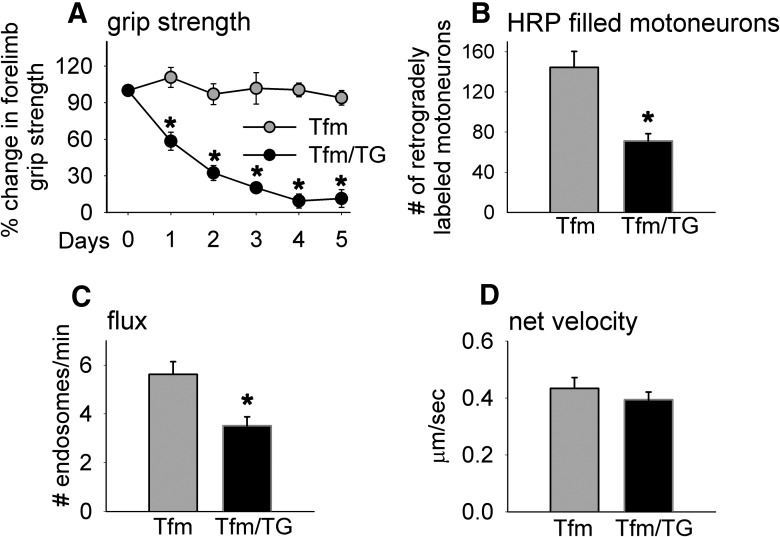Figure 2.
Adult male mice with functional ARs only in skeletal muscle fibers (Tfm/TG) show defects in motor function, retrograde transport, and endosomal trafficking. A, Myogenic TG male mice with a mutant allele (Tfm) of the endogenous AR gene (Tfm/TG) show an androgen-dependent loss of grip strength, with grip strength dropping to basement within 4 d of T exposure. Both groups of males were treated with exogenous T, given their negligible levels of endogenous androgen. Note that the grip strength of Tfm controls that lack functional ARs is unaffected by T administration. B, The number of anterior tibialis motoneurons filled with CT-HRP after 12 h of retrograde transport is significantly reduced in diseased Tfm/TG males compared with healthy Tfm controls, indicating that transgenic AR acting in muscle fibers induces defects in retrograde transport, independent of endogenous wild-type AR in motoneurons and elsewhere. C, D, Such Tfm/TG mice show deficits in flux, but not net velocity, after 5 d of T treatment, which is comparable to reported results from TG males on a wild-type background (Kemp et al., 2011). The current data reinforce the idea that muscle AR instigates a disease process that retrogradely impairs endosomal trafficking in motoneurons, possibly by perturbing aspects of the early endocytotic pathway. Graphs represent the mean ± SEM (A, B, N = 4-5/group; C, D, N = 6/group). A repeated-measures ANOVA indicated a grip strength × group interaction, and further revealed an effect of time on grip strength only for the Tfm/TG genotype. *Significant differences (p < 0.05) between groups based on a one-way ANOVA (A) and independent t test (B–D).

